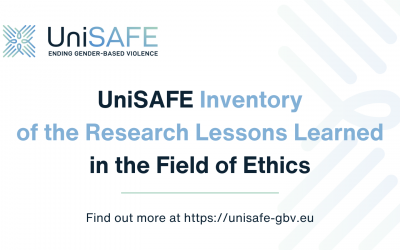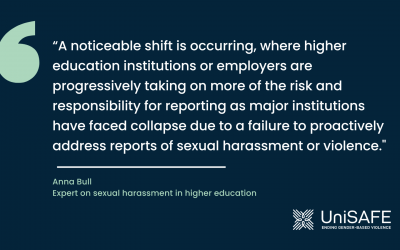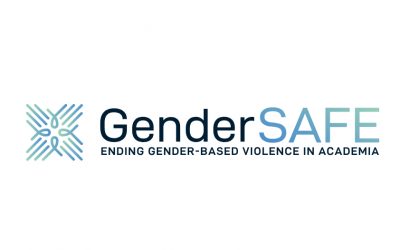The field phase of the UniSAFE survey ended on 1 May 2022. In total, over 35,000 responses were collected. We warmly thank all respondents and the people who made the data collection a success!
The UniSAFE survey aims at creating new quantitative evidence on gender-based violence in European higher education and research. The results will be integrated with qualitative evidence in a multilevel study design, analysed and translated into operational tools for research performing organisations and policymakers.
An online survey unique in its scope, target group and scale
The UniSAFE survey takes a broad perspective on gender-based violence. It measures incidents of violence related to six different forms of violence: physical, sexual, psychological and economic violence, as well as sexual harassment and online forms of violence. To develop its questionnaire, the UniSAFE survey team did an extensive mapping of existing studies and questionnaires.
Another aspect that makes the UniSAFE survey unique is that it captures the experiences of all students and staff (academic and non-academic) in higher education and research organisations.
Finally, the UniSAFE survey is one of the largest of its kind. It was conducted in 46 research performing institutions across 15 European Member States and among the vast network of Marie Curie Alumni Association. Overall, it reached 35,000 respondents.
What will the survey results be used for?
The UniSAFE survey aims at identifying the extent and spread, risk factors and consequences of various forms of gender-based violence. To produce comprehensive knowledge, UniSAFE has developed an innovative conceptual framework to study the mechanisms of violence: the 7 Ps model. By examining how Prevalence is related to the other six P variables (Prevention, Protection, Prosecution, Provision of services, Partnerships and Policies), this model marks a significant innovation in gender-based violence research: it extends the conventional approach adopted by the United Nations which focuses on 3 Ps (Prevention, Protection and Prosecution). A comparative multilevel analysis will be carried out to understand how macro (member state) and meso (organisational) factors may modulate the effects of the 7 Ps.
After this analysis, the next step will be to integrate the survey results with other sources. The online survey is only one of the important data sources for the analyses that make up the UniSAFE research. A mapping of organisational level policies and measures adopted to address gender-based violence, an in-depth analysis of case studies in 15 European countries, an inventory of institutional responses to gender-based violence and semi-structured interviews from groups more at risk of experiencing gender-based violence are also conducted.
All these data, both quantitative and qualitative, will feed into the development of recommendations and operational tools against gender-based violence. A set of recommendations will address all 7 Ps for various stakeholder groups: policy makers, RFOs, RPO management, NGOs and associations of students and staff. A toolbox for RPOs developing and implementing a GBV policy and action plan will be designed.
UniSAFE’s next outputs
Don’t miss UniSAFE’s next outputs:
- Policy Brief 1: September 2022
- Report on Case Studies on the effects and consequences of institutional responses to gender-based violence along 7Ps in RPOs: October 2022
- Report on the multi-level analysis of the integrated dataset: December 2022
- Assessment framework to take stock, measure progresses, and identify strengths and weakness in organisational responses to GBV along the 7Ps: February 2023
- White Paper: February 2023
- Set of recommendations: August 2023
- Toolbox for RPOs: October 2023
- Inventory of the research lessons learned in the field of ethics: February 2024



